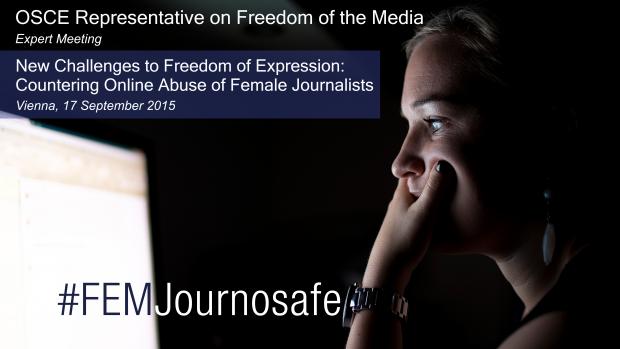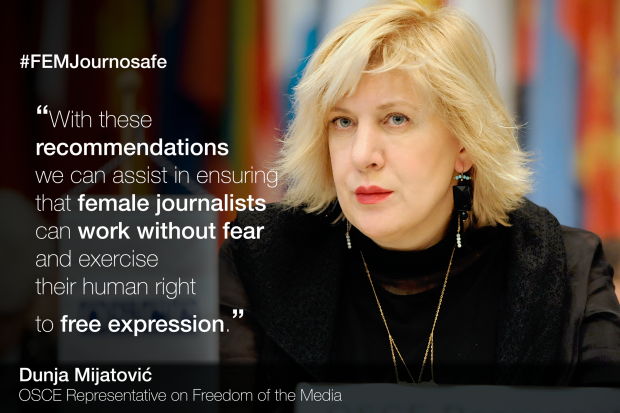Digital threats targeting female journalists
When
Where
Organized by
The digital environment has made journalists more exposed and vulnerable. Female journalists are increasingly being singled out and attacked on the Internet. For some, online threats of rape and sexual violence have become part of everyday life; others experience severe sexual harassment and intimidation.
On 17 September the OSCE Representative on Freedom of the Media hosted an expert meeting to help increase our understanding of the issues involved, best practices and possible solutions to tackle the mounting number of online threats targeting female journalists. The meeting gathered journalists, media experts, policymakers and government representatives to discuss the issues at hand, the recommendations from the meeting are available at www.osce.org/fom/193556.
Female journalists experience roughly three times as many abusive comments as their male counterparts on Twitter. (source: www.demos.co.uk)
More than 25 percent of the verbal, written and/or physical threats and intimidation the respondents encountered took place online. (Source: www.iwmf.org)
.
Get updates on the expert meeting via Twitter using the hashtag #FEMJournosafe.
The meeting was webcast live, the video from the opening session is available below, videos from all of the sessions are available here.
All policy papers, findings and contributions from the participants will be consolidated, together with relevant publications, in this online resource. It will be a platform for the exchange of information, experience and opinions on the topic.
Call to OSCE States
Call to the OSCE participating States
In a communique issued on 6 February 2015 to the OSCE’s 57 participating States, the OSCE Representative on Freedom of the Media demanded swift action to address the growing problem of online threats to female journalists online. She called on States to:
- Acknowledge the gravity of the problem and put it on the agenda now;
- Give priority to improving the conduct of law enforcement agencies;
- When new laws are drafted be aware of the chilling effects that laws aimed at restricting speech may have;
- Invest in media and Internet literacy to inform and improve citizens’ capacities to contribute to healthy and constructive media environments;
- Encourage more data and research and support non-governmental organizations that address the issue.


